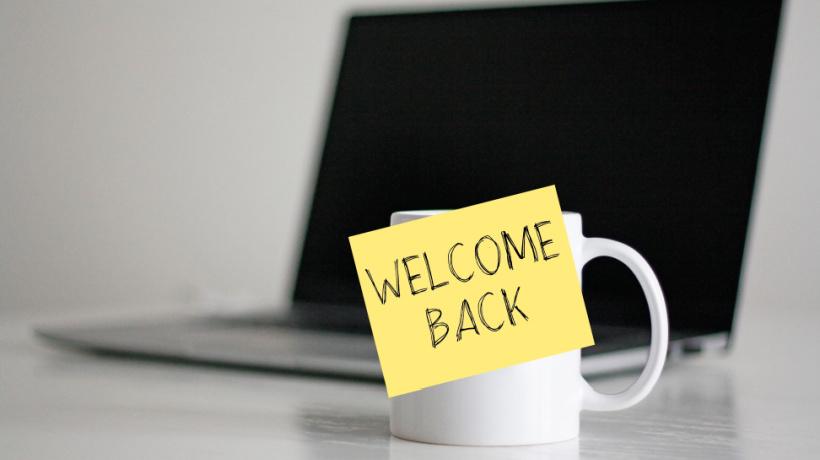Full Return To Office Might Be Dead: Fresh Employee Insights On RTO Mandates And Work Models
Is full return to office dead? The future of work trends is shifting, and your company might be looking for a work model that fits the post-pandemic situation. Even though 90% of companies say they’ll return to the office by the end of 2024, according to experts, the 5-day commute is "dead." While remote work ends for many employees around the world, people still wonder why companies want employees back in the office in the first place.
CEOs and managers might find plenty of reasons not to allow work from home, but the truth is that returning to the office is killing employee budgets and destroying work-life balance for workers around the globe. Consequently, this affects productivity and employee satisfaction. More often than not, companies risk losing top talent due to RTO. Depending on your type of business, work flexibility makes a difference in talent acquisition and employee retention.
To answer hot questions about RTO mandates, work models, and employee satisfaction, we asked 1,200 U.S. workers for their opinions. The results are promising for the future of work. One thing is certain: the return to office won't be as it used to be before the pandemic. Workplace culture is changing, and we're here to witness it and be the change ourselves. If you listen to what your employees want, you'll be able to create a work environment where productivity can skyrocket, no matter if your employees work from the office or work from home.
Let's dive a little deeper.

Return-To-Office Mandates: Mistake Or Good For Business?
Employees have to grapple with how their day-to-day will change in a post-work-from-home era where more and more companies begin to mandate a return to the office. But are RTO mandates good for business? Employees will have to adjust, be it a hybrid model or being in person for the entire five-day work week. From childcare to wardrobe selections, concerns surrounding cost, lifestyle change, and career trajectory are growing among American workers.
eLearning Industry's survey investigated how U.S. workers truly feel about returning to the office and how these mandates will affect their everyday lives moving forward. Did you know that over a quarter (25%) of employees have considered quitting their jobs over RTO mandates? Some of the employees' main concerns about working in the office include having no flexibility in work days (56%), being around more germs and having a higher chance of becoming sick (49%), the office being too noisy to concentrate on work (46%), and having to make small talk around the office (38%). To get the full stats, feel free to download our RTO survey.
In fact, according to a Standford economist, return to office is dead. Due to long-term technological and demographic trends, remote work may prevail and grow in 2025 and beyond. Seems that home is the new office for some. If you are considering an RTO policy, do consider employees' well-being and work-life balance. Those that don't might notice a negative impact on employee morale and overall engagement.
Depending on the specific particularities of your business, you can choose between on-site work, remote work, and hybrid work. But do make sure to understand what would work for your employees.
Workplace Flexibility And Perks In The Era Of Return-To-Office Mandates
The results of our RTO survey were staggering. We managed to determine fears, costs, and unknowns surrounding employees' return to office by focusing on these industries:
- Manufacturing
- Retail
- Healthcare
- Tech
- Finance/Insurance
Did you know that 3 in 5 employees say that return-to-office mandates are determined by CEOs or senior company leaders who might have a conventional or outdated perception of corporate culture? Meanwhile, 2 in 5 (44%) employees believe that CEOs don’t care if their staff’s morale suffers or if they lose their best talent by demanding employees to return to the office. Overall, over half (57%) of employees agree that return-to-office mandates are more about leaders wanting to micromanage their teams and not about increasing productivity or improving company culture. Also, over half of employees look forward to certain in-office perks to agree to return to the office.
Here's what to consider when planning to bring your team back to work:
- Flexible working hours
- Professional development opportunities
- Reimbursed lunch and transit
- Fare/gas
- Workplace/wellness benefits
- Team-building activities
However, we'll have to wait until next year to see if CEOs will finally admit whether return-to-office mandates managed to move the productivity needle or not. Management talks about the importance of team bonding effectiveness and how that is connected to the organizational environment. Yet, there's a way to build strong relationships remotely.
Even though it might seem like a good idea at first, return-to-office mandates can strain the employer-employee relationship. Any given organization should figure out employee needs before forcing RTO. Plus, companies that mandate a full-time return to office for everyone have to face the risk of losing their best talent. Thus, to drive retention, many organizations stay remote or at least offer work flexibility.

Key Take Away
When it comes to RTO mandates, most employees expect to spend more money on travel and commuting (78%), food expenses (70%), childcare (45%) and pet care (35%). Additionally, a quarter of employees expect to spend 1–2 hours commuting daily, eating up more of their time and flexibility. RTO has a huge impact on work-life balance. Is this really worth it?
Plenty of tech companies have the option to stay fully remote. Doing so gives them a big advantage in hiring the best talent, regardless of their geographical location. Thus, companies that want to expand their talent pool can gain a competitive edge by offering remote work positions to their staff. Working remotely or hybrid has its perks. And forward-thinking companies are preparing for the future. More often than not, the flexibility and comfort of working from home have resulted in a productivity boost compared to the time that teams were working in an office.
Notably, no one can be fully productive for 8 hours every day. According to research, in an eight-hour day, workers are productive on average for two hours and 53 minutes. So, in reality, having employees at the office for 8 hours doesn't mean they are working productively and effectively. Plenty of your employees are actually spending time reading news websites, checking social media, and discussing non-work-related things with co-workers. Others are actively searching for new jobs, while many of them are taking smoke breaks and making calls to partners or friends. Also, at the office, employees will spend time making hot drinks, texting or instant messaging, eating snacks, and making food—not to mention the lost time in endless meetings that could have never happened.
On that note, mandating a return to the office doesn't really make sense, does it? The key is to find out what works for your employees. Employee satisfaction is vital to the success of your company.







